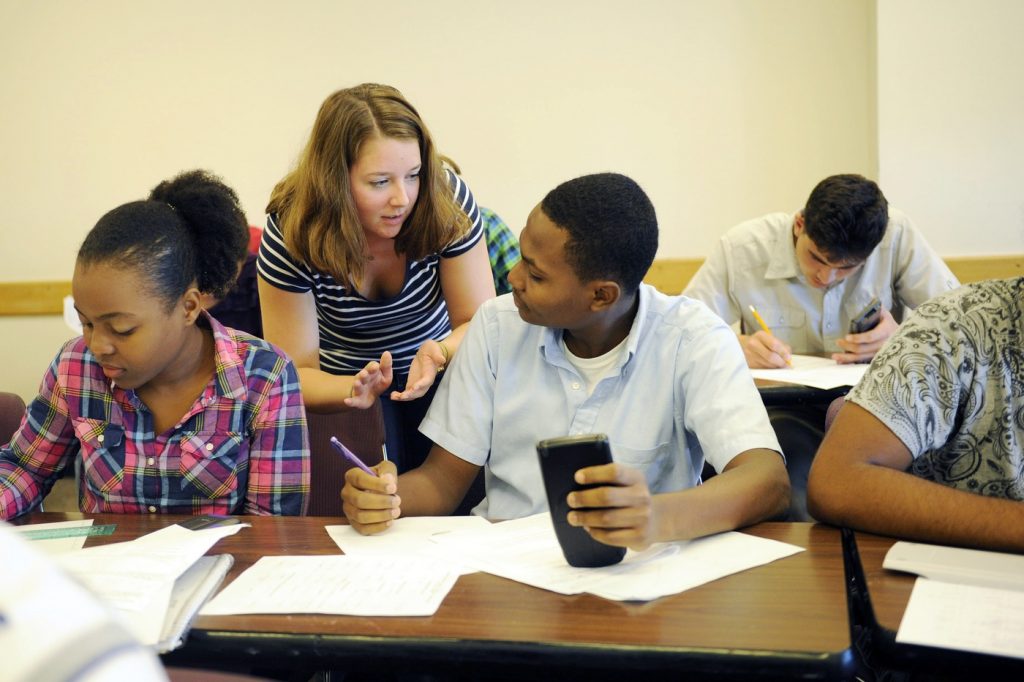By Sage Wesenberg, Biochemistry and Journalism 2019
Most early mornings of the summer in the cool Snell Library basement, you can find five classes of highly motivated rising seniors from the Boston Public Schools (BPS) honing their math skills as they prepare for the fall.
In 1994, Northeastern math professor Robert Case was concerned with the lack of advanced math courses in the BPS, primarily composed of underrepresented minorities, including African American and Hispanic students. Not only were there not many of these advanced courses, there were also many students with gaps in their math education, preventing them from reaching calculus by their senior year.
Case wanted to begin a program that would give extra attention to these students in the summer before their senior year in order to help them make a leap towards calculus. And thus, Bridge to Calculus was born.
Since then, the program has grown greatly. Taught by some of Boston’s best high school teachers, students also receive support from student mentors from Northeastern and other local institutions. Professor Don King and Rajini Jesudason in the Department of Mathematics organize and oversee the big picture and day-to-day activities.
More than 100 students from as many as 19 schools apply and are accepted to partake in the six-week intensive math course. Four days a week, students arrive on Northeastern’s campus at 7:30 a.m. for about two hours of math, often including guest lectures by Northeastern professors.
King sees the most student excitement around introductory calculus topics like tangent lines, derivatives, and limits. This year, students have also been offered an optional Python programming course.
At the end of the course, about 40 percent of students are recommended to take calculus in the fall. Many other students are recommended to take precalculus. The success of this program has expanded mathematics programs at many schools, as well as overall increasing the number of students, especially underrepresented populations, that take these advanced classes and are able to do well on AP exams.
Bridge to Calculus also emphasizes the importance of college; many of the students are interested in futures in science and engineering. The program’s alliance with The Bottom Line, a college preparatory counseling group for first-generation and low-income students, helps students prepare for college. Students also have the opportunity to meet Bridge to Calculus alumni and learn about their path since high school. Alumna Dr. Frinny Polanco has been a guest speaker the past two years. She was successfully able to reach calculus her senior year and years later has become a pediatrician at Tufts Medical Center.
This year’s classes will wrap up courses with a reception on August 3rd, as well as a series of presentations the following day from the programming students.
“Bridge Calculus was made to make [advanced math] possible for students without strong preparation in algebra and geometry. It definitely helps students make that jump to calculus and I think it generally increases their confidence in math,” King said. He hopes, that with stable funding and growing volunteer efforts, the Bridge to Calculus program will be able to continue to impact students’ lives and education as they bridge the gap.

Courtney Cavanaugh, E’19, goes over a question with Ronald Francois, 17, from Boston International High School, during the Bridge to Calculus program final exam held in Ryder Hall at Northeastern University on August 6, 2015. Photo by Matthew Modoono/Northeastern University

